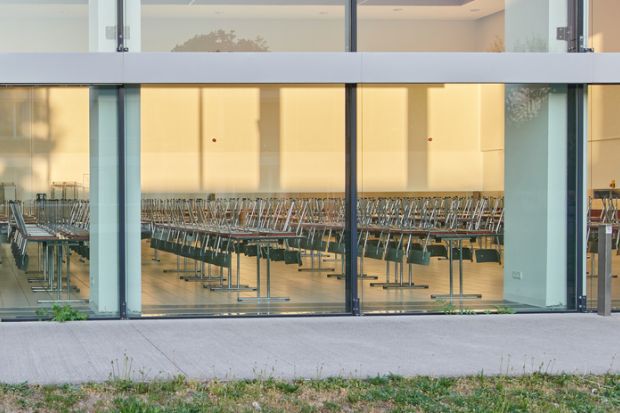Class attendance in US universities is thought to be at a record low, as a technologically fortified brew of stress, mercenary attitudes and – in some cases – low-quality teaching makes pandemic-era no-shows permanent.
Academics said that Covid lockdowns had normalised the idea of students skipping classes or watching them remotely.
“Attendance is a real problem now, in a way it wasn’t before the pandemic,” said Daniel Chambliss, an emeritus professor of sociology at Hamilton College. “And that’s attendance in both a physical sense and a mental stance.”
“A lot of folks are telling me that they’re having issues,” said Benjamin Selznick, an associate professor of strategic leadership studies at James Madison University.
“I have heard, anecdotally,” said Jonathan Malesic, an adjunct instructor of writing at Southern Methodist University, “about lecture courses with 25 per cent attendance.”
Two other trends in higher education might be compounding attitudes towards in-person classroom attendance, Professor Chambliss said. One, he said, was the growing reliance on adjunct instructors. That appeared to be giving students a lower-quality classroom experience, which might make them question the value of spending time in class.
Campus resource: Build community into the curriculum to improve in-person attendance
The other, Professor Chambliss said, was the growing emphasis in US higher education on job-oriented teaching – “this whole idea of return on investment, and that majors have to pay off”.
“The students think now, reasonably – they’re basically taught it over and over again – that they’re supposed to have a transactional view of this, that what you want is the best return for the least work, the least effort and the least money,” he said. “They get used to this notion that there’s nothing intrinsically worthwhile, and so if you can slide by with going to class less, that’s fine.”
Universities, Dr Malesic said, had directly promoted the idea of online learning as a viable alternative to in-person teaching. “Those technologies can give students the illusion that they don’t have to be physically present in order to gain a course’s content and skills,” he said.
Less clear, for many faculty, was what to do about it. Dr Malesic is among many who believe that classroom attendance should be required. “Given that human beings don’t always respond to positive incentives, we also owe them a few negative incentives,” he said. “Attendance requirements are one.”
Many frustrated faculty appeared to share that view, said Tyler Doggett, a professor of philosophy at the University of Vermont. But Professor Doggett said he found that tactic “bad for morale”, because students who didn’t want to come to class showed everyone else there a visible uninterest.
“I think it’s paternalistic to make adults show up for a class they are paying for but don’t want to attend,” Professor Doggett said. Mandatory attendance looked even worse now, he said, because student mental health “is pretty terrible these days, and I have a lot of students taking time because they truly need a mental health day or two”.
Dr Selznick was more conflicted. In a small discussion-based classroom, if few students attended, “how are we going to learn from each other,” he said. In a large lecture hall format, meanwhile, it might be better for a student needing a mental break to take it, he said.
“We need to challenge the narrative that when a student doesn’t show up for class it’s because they don’t care,” Dr Selznick said.
For Professor Chambliss, such uncertainties about motive suggested a key reason not to require in-person attendance. If students suddenly stopped showing up for his classes, he said, that was a sign that it was time to investigate. “Because I want to know if they don’t enjoy them,” he said.
Register to continue
Why register?
- Registration is free and only takes a moment
- Once registered, you can read 3 articles a month
- Sign up for our newsletter
Subscribe
Or subscribe for unlimited access to:
- Unlimited access to news, views, insights & reviews
- Digital editions
- Digital access to THE’s university and college rankings analysis
Already registered or a current subscriber? Login










